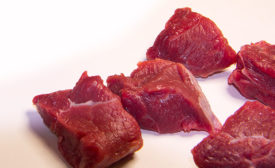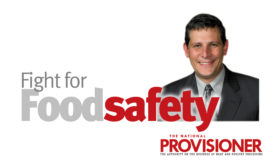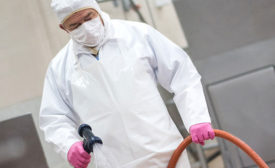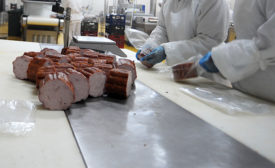Food Safety
Food Safety Summit
Amazon V.P. to keynote Food Safety Summit
Carletta Ooton, Amazon V.P., to discuss the company's unique business model, using big data to transform food safety.
Read More
Processing Tech
Improved sanitation and design on slicers, dicers and cutters
A cleaner cut: Improved sanitation and design is creating the slicers, dicers and cutters of the future.
Read More
Food Safety
Ensuring safe chemical handling for meat and poultry sanitation workers
How to avoid a chemical calamity: The safety of workers who clean and sanitize meat and poultry facilities and equipment is highly dependent on the training they receive in the handling and use of chemicals.
Read More
Food Safety Report | Apparel
Food safety apparel in meat and poultry plants: Suit up for safety
Appropriate food safety apparel in meat and poultry plants can minimize cross-contamination threats, but attaining full compliance can be challenging.
Read More
Food Safety Report | Cyber-security
Food security: Are you ready for the next cyberattack?
Read MoreFood Safety Report | Fight for Food Safety
Expect substantial, rapid food-safety advancement to continue
Speeding along
Read More
Stay ahead of the curve. Unlock a dose of cutting-edge insights.
Receive our premium content directly to your inbox.
SIGN-UP TODAYCopyright ©2025. All Rights Reserved BNP Media.
Design, CMS, Hosting & Web Development :: ePublishing












